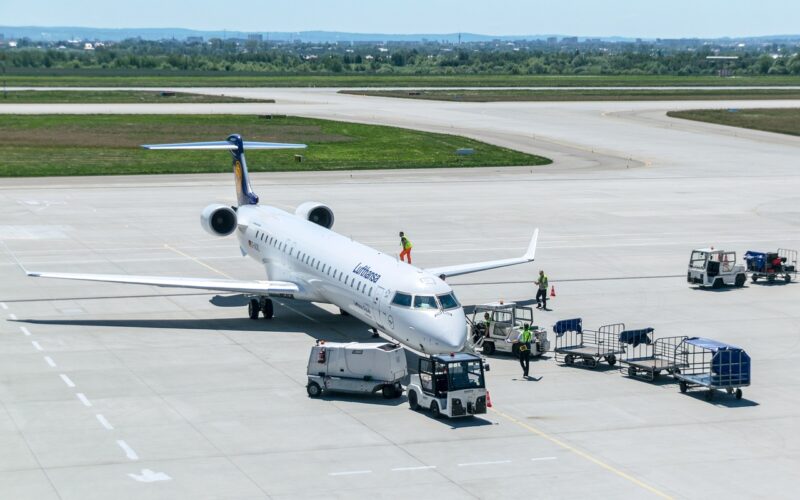The International Air Transport Association (IATA) has identified three key priorities to strengthen the ground handling sector, ensuring its resilience and long-term sustainability. These priorities were emphasized during the opening of the 35th IATA Ground Handling Conference (IGHC) sponsored by Etihad Airways in Abu Dhabi.
The highlighted priorities are effective staff recruitment and retention, consistent implementation of global standards, and accelerating digitalization and automation in ground handling operations.
Monika Mejstrikova, IATA’s Director of Ground Operations, underlined the urgency of addressing these priorities in preparation for the busy upcoming peak Northern Hemisphere summer travel season. She emphasized the need for swift action to cope with increased traffic. Mejstrikova stated, “Ensuring efficient onboarding of new employees and working with governments to reduce bottlenecks in security clearances is critical in the short term. In the longer term, more effective staff recruitment and retention, implementing global standards, and accelerating digitalization and automation will be vital to build resilience and ensure sustainability.”
The ground handling sector faces significant challenges in staffing, with 37% of professionals anticipating shortages until the end of 2023 and beyond, according to a recent survey conducted by IATA. Moreover, 60% expressed concerns about the availability of qualified staff to ensure smooth operations. Additionally, 27% of respondents feared losing their current employees in the near future.
To address these issues, IATA outlined a series of initiatives to alleviate labour shortages in the ground handling industry. These initiatives include implementing competency-based training with online assessments, mutual recognition of security training and employee background records among authorities to expedite recruitment processes, automation of physically challenging tasks, and promoting career development and recognition of years of training and skills.
IATA has launched the Ground Ops Training Passport, which supports staff retention and professional growth by mutually recognizing skills and training across ground handlers, airlines, and airports. This initiative aims to drive cross-utilization of skilled personnel, providing employees with access to their training records for ongoing professional development.
Global standardization of processes is another priority highlighted by IATA. The organization called for the ground handling industry to accelerate the adoption of the IATA Ground Operations Manual (IGOM) to ensure worldwide operational consistency and safety. IATA has launched the IGOM Portal, an online platform where airlines and ground handlers can share the results of their gap analysis between company procedures and IGOM. The portal aims to provide a global benchmark for harmonization and increased efficiency. Over 140 airlines have already subscribed to the services, and the portal is now open to ground handling service providers.
IATA also urged governments to recognize the IATA Safety Audit for Ground Operations (ISAGO) in their regulatory frameworks for oversight. Close to 40 airports and regulators globally have already endorsed ISAGO, which complements their monitoring, compliance, performance, or licensing systems through cooperation agreements. Recognizing ISAGO can deliver significant benefits, including greater harmonization, implementation of Safety Management Systems (SMS), and reduction of duplicate audits.
Baggage standardization is another area where IATA called for greater alignment. The organization is working on updating baggage standards to reflect new developments in real-time tracking, electronic bag tags, and Bluetooth technology. By improving baggage handling through collaboration and innovation, IATA aims to reduce the staggering costs associated with lost or delayed luggage, which amounted to $2.5 billion in 2019.
Digitalization and automation were highlighted as critical factors in enhancing sustainability, efficiency, and process improvements. IATA outlined three priorities in this area: ramp digitalization, load control digitalization, and ground support equipment (GSE) automation. These initiatives aim to reduce delays, workload, costs, and errors while enabling real-time updates and creating a safer and more environmentally sustainable working environment.
As the ground handling sector faces complex operations and turnaround challenges, Mejstrikova emphasized the role of technology and communication advancements in avoiding delays and improving overall efficiency. These advancements not only enhance operations but also contribute to a better working experience for staff on the ramp.
The 35th IATA Ground Handling Conference continues to explore strategies and solutions to address the challenges and opportunities in the ground handling industry, with a focus on the highlighted priorities of staff recruitment, global standards, and digitalization.













